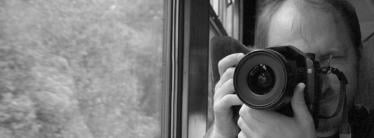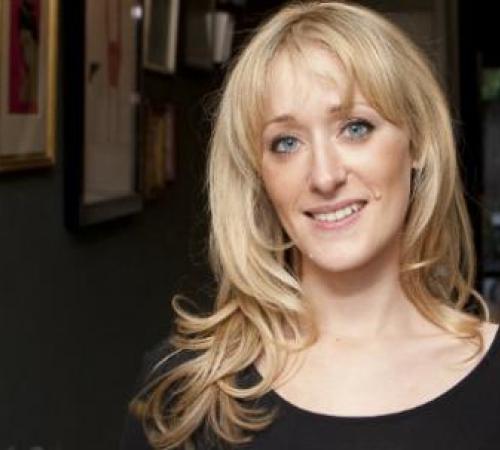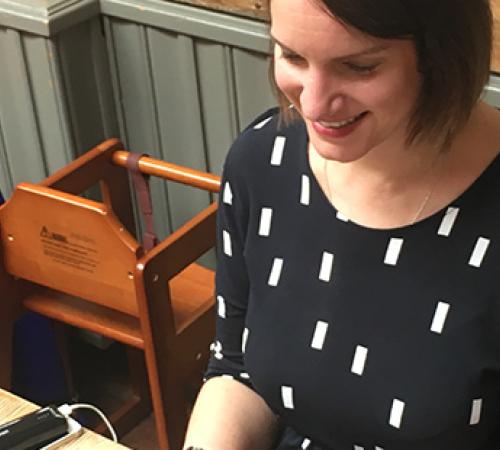
Small Business Stars: Stuart Dreghorn of Dreghorn Photography

Stuart’s interest in photography started while he was a member of his university’s Photographic Society. Interest soon turned into a passion of his but while a few society members talked about forming a business, Stuart had other plans – namely in theatre.
Stuart had the intention of becoming a professional director but found he always had a camera with him. And he spent more time taking pictures than anything else. Soon, the prospect of a business photography venture seemed a lot more appealing.
Stuart explains in his story how your real passion might not be so immediately obvious and why his business is very much reliant on relationships with others, which is why he makes every meeting and potential opportunity count.
1. I was between theatre productions and thought “Why not give photography a go?”
Things changed when I was asked to be the photographer for an event: I ended up selling quite a number of prints and having a lot of fun while doing it. Shortly thereafter I was approached by my colleague about setting up a business and, as I was between productions, I thought why not give it a go as I could always go back to the theatre once business died down.
So we founded a studio and got to work. That was years ago now and the business shows no signs of stopping. Photography has become my main passion, and I honestly couldn’t imagine myself doing anything else now.
2. I make a point of chatting to clients and tailor my service to their needs
I’ve always believed in treating every client as an individual, not as a statistic. What works well for one might not work for another, so to ensure I give the best quality service to every visitor I make a point of chatting to clients, getting to know them in order to tailor the service to their needs.
For example students taking part in our teaching courses will learn at different speeds, so it’s essential to find out what level people are at so the material isn’t pitched over their head.
Also, given my theatrical past, I can never resist a bit of showmanship: I try to make all my classes and shoots entertaining for all involved.
3. In the community I work in, favours and friendships are more important than contacts and contracts
Glasgow has a thriving arts scene. The community is very close knit, with a wealth of different community hubs meeting, mingling and interacting with one another. Camera clubs, photography colleges, independent businesses like my own all cross paths and when they do the level of interconnectedness shows.
Even when working with someone for the first time it’s almost certain you will know someone in common. Arrangements are quite informal, with favours and friendships being more important than contacts and contracts. That’s not to say there isn’t quality work in the Glasgow scene, it just means you see a lot more collaborative efforts.
4. Teaching has now become a major arm of the business
The biggest change has been the gradually increasing emphasis on teaching. I’ve always enjoyed talking to other photographers since my days in the camera club but in recent years this has become one of the major arms of the business.
I enjoy working as a photographer too much to ever give it up in favour of education, however I believe I’ve found a nice balance between talking photography and practising photography that serves the business well and keeps me entertained.
5. There are benefits in carving out a niche for yourself
My greatest success is recognition, pure and simple. I’ve carved out a pleasant little niche for myself and the benefits of this are plain to see. Whenever a discussion comes to photography, whether it’s taking photos, providing studio hire or teaching a course I find my name comes up near the top of many lists.
There will always be competition and always much more to do to keep the name out there, but in a market as over-saturated and competitive as photography, standing out from the crowd is an achievement worth treasuring.
6. I made sure to always be aware of where I was, where I wanted to go and how to get there
Growing the business during one of the most challenging economic situations in recent memory is a challenge now worth celebrating. The entire photographic industry faced the threat of devaluation as cash-strapped clients pushed for lower rates and desperate photographers slashed their prices to undercut the competition, often damaging their own business in the long term.
However any artist wants their work to be appreciated for its creative virtues, not for being the lowest price. Keeping an eye on the long term is what allowed the business to not only survive but grow: I made sure to always be aware of where I was, where I wanted to go and how to get there.
7. It’s important to find your own feet
Have a solid idea of who you are and what you want to do. Bring your outside knowledge and passions in to the business, as these will help you stand out from the crowd. There are a lot of blog, videos and seminars out there that will teach you to mimic the ideas of someone else, and there is worth to these, but unless you find your own feet you will just be one of a thousand other people following the same plan.
Make sure to enjoy your work, but also take time out to enjoy photography as a hobby too: arrange a fun project once in a while to keep your skills sharp and your enthusiasm fresh.
Find out more about Stuart by visiting: www.dreghorn-photography.co.uk/ (external link)
For more advice and insight from business owners, visit our Small Business Stars hub.
Disclaimer:
At Hiscox, we want to help your small business thrive. Our blog has many articles you may find relevant and useful as your business grows. But these articles aren’t professional advice. So, to find out more on a subject we cover here, please seek professional assistance.





